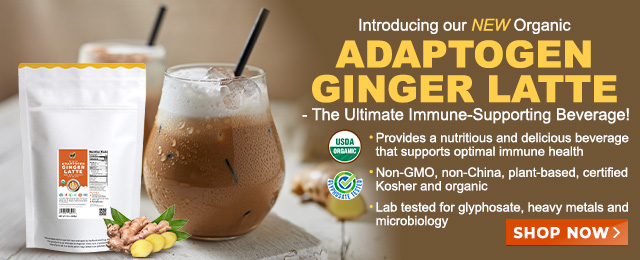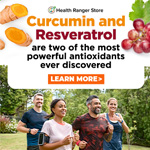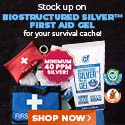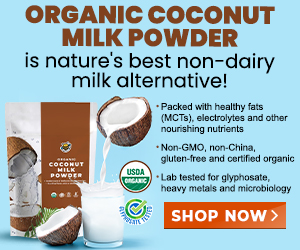
BPA finally banned from baby bottles, only to be replaced by deadly BPS chemical
Sunday, October 20, 2013 by: Jonathan Benson, staff writer
Tags: BPA, BPS, plasticizers
- Treasury secretary declares war on “politically driven” financial regulation: Is this the end of ESG overreach?
- Vitamin D: The sunshine vitamin's surprising role in slashing diabetes risk
- BIGGEST SCAM: You pay income tax, then taxes on purchases, then personal property tax on what you own that you already paid taxes on with taxed money
- Newly released JFK files reveal Pentagon's role in creating Lyme disease and covid in the same lab
- Analysis: The coming economic collapse, a mass uprising and Trump's three secret weapons to halt the growing revolt
- Rational epidemiologists were censored and there was NO scientific precedent for lockdowns: SARS-CoV-2 had already circulated globally for months
- American food is the MOST TOXIC “FOOD” on earth
- Silencing America: How USAID and global engagement center colluded with foreign governments and media to censor free speech
- EXPOSED: Antifa and IRS collude to shield radical funding from taxation
- The flu vaccine paradox: Are we making things worse?
- San Diego Border Patrol chief: Trump’s troop deployments have transformed BORDER SECURITY
- A lack of integrity in Academia: Harvard professor found GUILTY of fraudulent research to promote CRT theory
- Big Pharma's $8 Billion bribery scheme exposed: how doctors are pushed to prescribe junk science, not heal
- Heads up! List of food shortages expected in 2025 as the campaign of forced starvation continues to be waged against the American people
- Florida takes a stand: DeSantis proposes permanent ban on mRNA vaccine mandates
- Discovery of Texas GOP representative living in retirement home amid health challenges and congressional absence sparks uproar
- 5 Simple steps to boost your brainpower: How to strengthen executive function in a distracted world
- Trump reverses course on Gaza plan, says “nobody is expelling Palestinians”
- Reclaim your health: How midlife exercise reverses years of inactivity
- A lack of integrity in Academia: Harvard professor found GUILTY of fraudulent research to promote CRT theory
- Space war brewing? Russia threatens to destroy Starlink satellites
- EPA advisor admits the agency is funneling billions to climate groups ahead of Trump’s return to White House
- Elon Musk: Aliens could be here on Earth RIGHT NOW
- Big Pharma's $8 Billion bribery scheme exposed: how doctors are pushed to prescribe junk science, not heal
- Historian warns Israel may be entering an “IRREMEDIABLE DECLINE”
- Trump reverses course on Gaza plan, says “nobody is expelling Palestinians”
- Mike Adams Sermon 66: God will DESTROY ISRAEL for its wickedness
- Rep. Nancy Mace introduces bill to ban biological males from female facilities on federal property
- New York politicians push bill allowing governor to indefinitely detain the unvaccinated on a whim
- RFK Jr.'s SSRI antidepressant investigation sparks liberal meltdown, exposes Big Pharma's dangerous game
- 5 Simple steps to boost your brainpower: How to strengthen executive function in a distracted world
- Mark Zuckerberg's REAL NAME is Jacob Greenberg and he is the GRANDSON of DAVID ROCKEFELLER, hence the POWER of FAKEBOOK
- Survival 101: Effective EMF blocking techniques
- Sales of survival bunkers rise following Russia’s use of the Oreshnik hypersonic ballistic missile
- Trump Administration cuts 2,000 USAID jobs, places most employees on leave in sweeping reform effort
- Pilots report mysterious lights 'moving at extreme speeds' across Oregon skies
- EPA advisor admits the agency is funneling billions to climate groups ahead of Trump’s return to White House
- The Health Ranger releases “Vaccine Zombie” song and music video, using AI-animated zombies for the music video
- The pandemic as a tool for INDOCTRINATION: Understanding “The Indoctrinated Brain” by Dr. Michael Nehls
- California's social media censorship law struck down: A victory for free speech or a threat to online safety?
- Mike Adams releases new song and music video: Nothing More Disgusting Than a Globalist
- Congratulations to the FULLY UNVACCINATED as you resisted the COVID-19 PROPAGANDA MACHINE fueled by over $100 BILLION
- Mike Adams releases country western hit single: Goin’ Back in Time is Comin’ Home
- Dr. Mike Yeadon releases 15-minute testimony - WATCH - about genocidal intent of COVID “vaccines”
- RFK Jr. clears key hurdle: Sen. Susan Collins backs controversial HHS nominee, signaling a new era for health policy
- Mike Adams releases music poetry sensation: A Child of God
- Unpacking the Lies That We’ve Been Fed – new song and music video released by Mike Adams, the Health Ranger
- Trump administration takes on global censorship: A new frontier for free speech advocacy
- Ex-FBI Chief EXPOSES disgraceful government coverups of Oklahoma City Bombing, Kennedy assassinations, 9/11 WTC, and "Terrorism" as plot to destroy Constitution
- Federal judge backs Trump's mass firings, clearing path for government downsizing
- Florida takes a stand: DeSantis proposes permanent ban on mRNA vaccine mandates
- Michigan sheriff announces criminal investigation into 2020 election crimes, Dominion Voting Systems
- “Why we influenced the 2020 elections”: Facebook files reveal the coordinated effort to bury the Hunter Biden laptop story
- Bush tomato: A mighty superfood that supports digestive health
- Red Cross issues warning to stop blood plasma donations from vaccinated people
- Scientists confirm: GENIUS brain function can be spontaneously unleashed in humans without any apparent cause
- EPA advisor admits the agency is funneling billions to climate groups ahead of Trump’s return to White House
- HYSSOP: What research reveals about the health benefits of this ancient holy herb
- Two containers with completed ballots fall out of truck in Florida
- Fully vaccinated about to see “tsunami” of illness and death, warns virologist
- Today I asked our AI language model “Neo” about which phytonutrients or phytochemicals can block the spike protein related to SARS-CoV-2 … Here is what it answered…
- Global leaders unite to clamp down on “misinformation” with UN-backed Cascais Declaration
- BREAKING: 2025 NDAA authorizes mandatory military draft of WOMEN across America… as Pentagon pursues global NUCLEAR war with both Russia and China at the same time
- Michael Yon warns of a ZIONIST TAKEOVER in Trump’s second administration
- BOMBSHELL: DNA testing kits are a SCAM to develop ethnic-specific bioweapons
- Ozempic and Wegovy weight loss drugs are injectable LIZARD VENOM PEPTIDES that may unleash a devastating wave of organ failure… side effects align with symptoms of SNAKE BITES
- Israeli soldiers accused of even more torture and abuse in the West Bank
- These 13 countries just signed an agreement to engineer a global FAMINE by destroying food supply
- NASA admits that climate change occurs because of changes in Earth’s solar orbit, and NOT because of SUVs and fossil fuels
- RFK Jr. clears key hurdle: Sen. Susan Collins backs controversial HHS nominee, signaling a new era for health policy
- Sermon 30: How Jesus reveals Caesar’s FAKE CURRENCY and FALSE AUTHORITY
- Coriander seeds: Ancient medicine backed by modern science
Prompted by widespread consumer outrage over BPA's use in children's products despite its proven toxicity, the FDA reluctantly issued its basically useless ban, claiming that the decision "simply codifie[s] what the industry was already doing based on the preference of consumers," to borrow the words of New York Times (NYT) writer Sabrina Tavernise. The FDA, in other words, is trying to assert its (ir)relevance in the matter after the fact, even though the people have already made the decision with their wallets.
Humorously, the FDA, while issuing its ban, made a point of reiterating its position that BPA is still safe, and that the ban has nothing to do with BPA's safety. FDA Deputy Commissioner Michael Taylor, former Monsanto lawyer-turned Vice President of Public Relations, stated publicly that his agency "continue[s] to support [BPA's] safe use," this after the agency stated in 2010 that it had concerns about the effects of BPA on "brain, behavior and prostate gland[s] of fetuses, infants and children."
Fortunately, the FDA's dubious position on BPA reaffirms that the agency has no clue what it is talking about, and does not take actual science seriously. The FDA has long been in bed with the chemical industry, and its refusal to admit that BPA is toxic, especially to children, will eventually become the agency's demise.
BPS is more dangerous than BPA
But an even bigger issue than BPA is its replacement, BPS, a chemical that was found in a recent study to have a significantly higher uptake in skin compared to BPA. Published in the journal Environmental Science & Technology, the first ever study on BPS' toxicity verified not only that the chemical is widely used, even in BPA-free products, but that it is also significantly more toxic because of its incredible absorption rate. (https://www.naturalnews.com/036497_BPA_BPS_chemical.html)Few people are aware of the existence of BPS because nobody is really talking much about it. Just like with BPA, the safety of BPS was never properly tested prior to its quiet introduction and use in consumer products, which is hardly surprising since most of the chemicals used in consumer products today were never properly safety tested. (https://www.naturalnews.com/029167_consumer_products_chemicals.html)
"Compared with when BPA was more widely used, people may now be absorbing 19 times more BPS through their skin, and people who handle thermal cash-register paper in their jobs may be absorbing even more BPS," says a recent U.S. News and World Report piece on BPS, quoting the words of a research scientist at the New York State Department of Health who led a study on BPS.
Sources for this article include:
http://www.npr.org
https://www.naturalnews.com/036497_BPA_BPS_chemical.html
http://www.nytimes.com
http://health.usnews.com
BPA at FETCH.news
Get independent news alerts on natural cures, food lab tests, cannabis medicine, science, robotics, drones, privacy and more.
Take Action: Support Natural News by linking to this article from your website
Permalink to this article:
Embed article link: (copy HTML code below):
Reprinting this article:
Non-commercial use OK, cite NaturalNews.com with clickable link.
Follow Natural News on Facebook, Twitter, Google Plus, and Pinterest
Science News & Studies
Medicine News and Information
Food News & Studies
Health News & Studies
Herbs News & Information
Pollution News & Studies
Cancer News & Studies
Climate News & Studies
Survival News & Information
Gear News & Information
News covering technology, stocks, hackers, and more



"Big Tech and mainstream media are constantly trying to silence the independent voices that dare to bring you the truth about toxic food ingredients, dangerous medications and the failed, fraudulent science of the profit-driven medical establishment.
Email is one of the best ways to make sure you stay informed, without the censorship of the tech giants (Google, Apple, Facebook, Twitter, YouTube, etc.). Stay informed and you'll even likely learn information that may help save your own life."
–The Health Ranger, Mike Adams













































